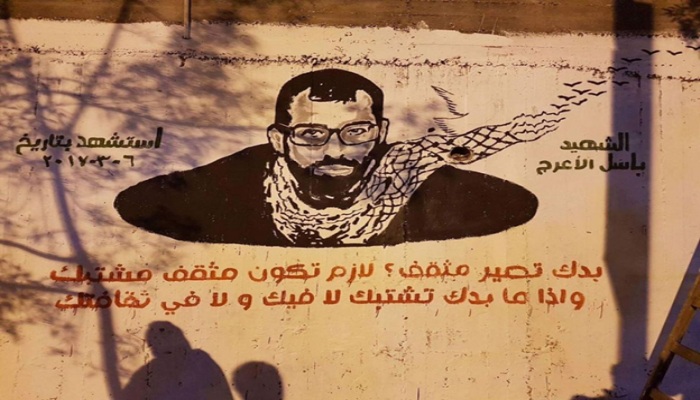
Afrasianet - Author: Hana Abdullah Talouzi - I let my mother tell about me, crying with heartburn and pride. She knew that I had chosen this path of my own volition, that I had read a lot, thought, and decided that resistance could only be done. She patted my picture and said, "He did not fear death, but embraced him as a lover embraces his last poem."
"Greetings of Arabism, homeland and liberation, but after...
If you are reading this, it means that I have died, and the soul has ascended to its Creator, and I pray to God to meet him with a healthy heart that is coming, unplanned, with sincerity without an atom of hypocrisy. How difficult it is to write your will, and years ago I passed while contemplating all the commandments of the martyrs that they wrote, I have always been puzzled by those commandments brief, fast, reductive, lacking eloquence and do not cure our anger in the search for questions. I am now walking towards my death satisfied and convinced and found my answers. Oh Willie, what a fool I am, and is there Report or disclose the act of the martyr. I was supposed to write this many months ago, but what kept me away from this is that this is your question you who are living, so why should I answer you? You should seek, but we, the people of the graves, seek nothing but God's mercy."
On the morning of 27 January 1984, I, Bassel al-Araj, was born in the village of al-Walaja near Bethlehem, and I came to this world carrying the prayers of a patient mother, to carry the concern of the homeland and to go on the path of resistance. Since my childhood, I was passionate about historical tales, a lover of books, and my imagination was filled with battlefields, I imagine myself a leader facing the invaders, as Qutuz faced the Tatars. I was naughty, I refused imitation, I had many questions, I hated stillness and I loved doing.
I finished high school with distinction in the scientific discipline and traveled to Cairo to study pharmacy. But my heart was attached to Palestine, I was reading about the land, about the torn geography, about the history of resistance, about the faces of the martyrs that never die. I returned to Palestine two years later, living in Shuafat refugee camp, then in Ramallah, where I worked in a pharmacy and then in the Palestinian Museum as a researcher in the history of resistance. There was no national activity without me being present, by word, in the street, by stones, and beyond.
In 2012, I wrote an article titled "Don't be with the occupation against them," in which I defended Palestinian women activists against those who mock their struggle, believing that ferocity, when embodied in women, imposes respect on enemies. I was not only one of those who wrote about the resistance, but I lived it, weaving it from the details of life, seeing at every moment an opportunity for rejection, and in every street the possibility of revolution.
On the first of April 2016, my companion Muhammad and Haitham and I had to disappear after being hunted down by the PA apparatus. Two weeks later, I announced our arrest as a "terrorist cell." I spent a month in the cells, then we went on hunger strike to protest our political detention, and I was released in September, but I knew that the occupation was waiting for me, so I disappeared again.
I stayed for months in hiding, moving between houses, living in the shadows, watching and planning, writing and preparing for what was to come. At dawn one day, the occupying forces surrounded the house. They raided the place at twelve in the middle of the night. I fought with them for more than an hour, until I ran out of ammunition. I was hit by 22 bullets in the chest that I received from an unplanned kisser, and the room was shelled with a shell to make sure that the occupation forces killed me. As for my soul, it rose free, as I wished.
I let my mother tell about me, crying with heartburn and pride. She knew that I chose this path of my own volition, that I read a lot, thought, and decided that resistance can only be done. She patted my picture and said, "He did not fear death, but embraced him as a lover embraces his last poem."
I chose to be different, to write my blood in the streets of Ramallah, and to leave my mother and loved ones a final commandment: "Don't look for me in the graves, look for me in books, in the neighborhoods, in the echo of bullets, and in the trembling of the anthem when the country's flag is raised."

